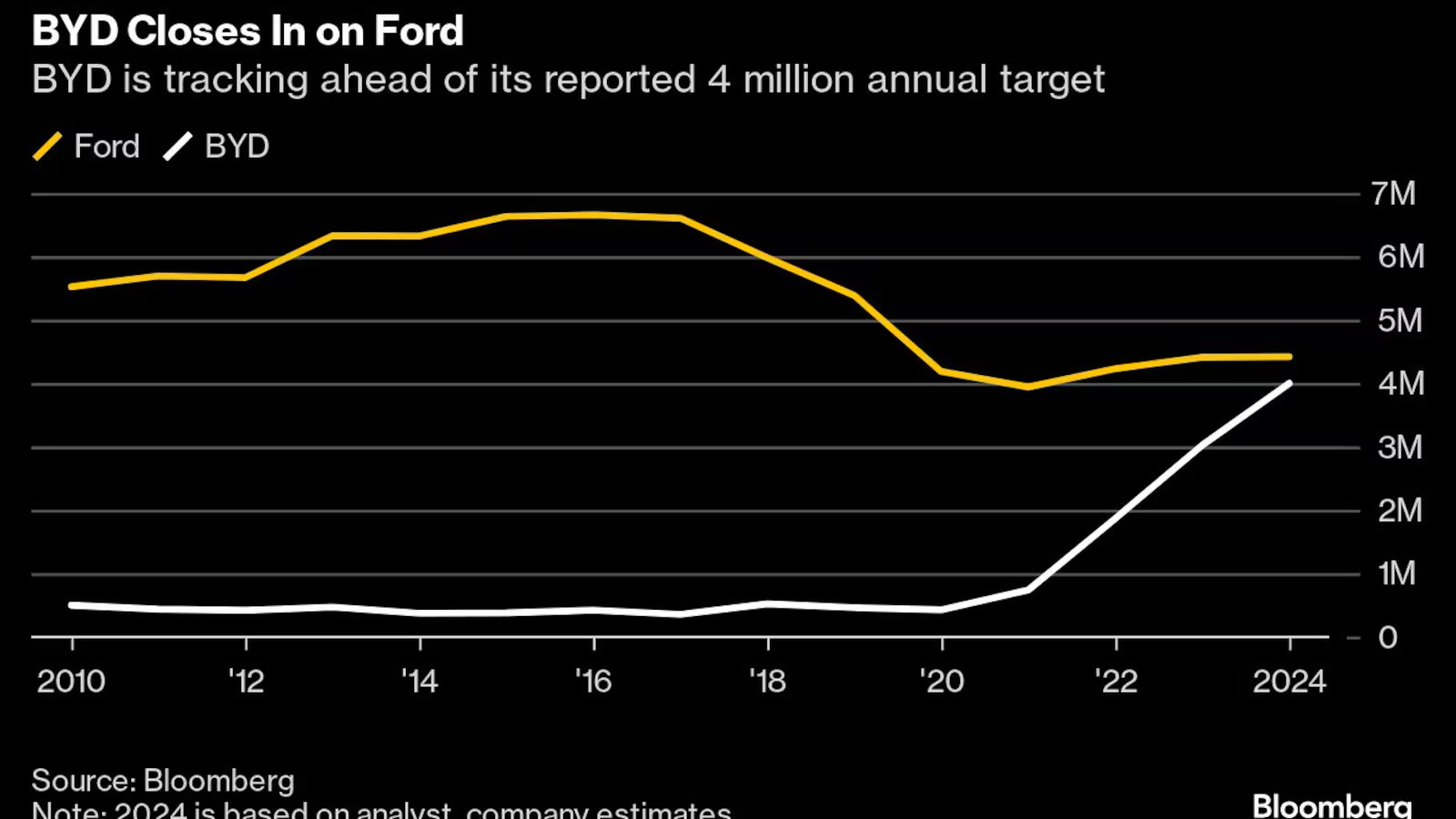If you ask the CEO of Lucid (Lucid) Peter Rawlinson, the company is an EV manufacturer that is “very protective” if President-elect Donald Trump reduces the federal tax credit for electric vehicles. Despite the lawsuit, Lucid's stock fell to an all-time low below $2 a share.
Can Lucid lose the EV tax credit?
Lucid is coming off its third consecutive quarter of deliveries. With another 2,781 vehicles sold in Q3, Lucid's total deliveries reached 7,142 in the first nine months of 2024, which is already higher than the 6,001 delivered in 2023.
However, stock prices fall following a Reuters reported Thursday that Trump's transition team is “planning to kill” the EV tax credit, which provides $7,500 to buyers of clean cars.
The report also cited two sources who said Tesla (TSLA) representatives told Trump's team that they support plans to end subsidies.
CEO Elon Musk, who has fully endorsed Trump, said the credit loss would have little impact on Tesla's sales but would be “dangerous” for others in the US.
Although its luxury Air sedan, which starts at $69,900, doesn't qualify for the $7,500 credit, Lucid offers it for lease. However, Rawlinson said most of his clients make more than $150,000 for single filers and the $300,000 limit for couples filing jointly.

As a result, even if Trump cuts the EV tax credit, Lucid's CEO believes it is in a stronger position than most of the competition.
When asked about Trump's plans, Rawlinson said Bloomberg Television Friday that “Lucid, of all the EV makers, is the most protected from that.”
Lucid's CEO also said that he is not worried about Musk receiving favorable treatment if Trump takes office. Rawlinson explained:
We have really taken the mantle of technological leadership from Tesla right now, and this is not being recognized enough. So, I think we are in a very strong position to weather any such storm.
Lucid opened orders for its first electric SUV earlier this month. Starting at $79,800, the Lucid Gravity is expected to get an impressive 440 miles of range per charge.

Rawlinson calls Gravity a “landmark product” with the most advanced technology yet, which he says is “years ahead of the competition.” Last month, we got our first look at its low-cost electric SUV. Prices for the new model will start under $50,000.

It will be the first of at least three midsize Lucid EVs, with production expected to begin in late 2026. Rawlinson said the mid-range models are aimed “right in the heart of the Tesla Model 3, Model Y space.”

Despite the confidence, Lucid's stock hit its lowest price on Friday since it went public in July 2021. Lucid's shares are down about 17% this week, sitting below $2 per share.
Electrek's Take
Eliminating the federal tax credit would put the entire US auto industry behind. China continues to gain global market share as leaders like BYD expand into key overseas markets such as Europe, Southeast Asia, and Central and South America.
In fact, according to BloombergBYD is quickly closing in on Ford in global deliveries and could be the top American automaker by the end of 2024.

BYD's growing presence in the world is due to its early beginnings as a battery maker. However, the Chinese government is fueling the growth of EV sales by subsidizing gas car dealers.
In accordance with Rho MotionChina continues to dominate the global market with a record 1.2 million EVs sold in October alone. China has now sold 8.4 million EVs in 2024, up 38% year-on-year (YOY), compared to 1.4 million in the US (+9% YOY).
Rawlinson may be right. Lucid could be one of the immune systems if the tax credits are cut. However, other US automakers, such as Ford, GM, and Jeep-maker Stellantis, may not be so lucky.
So, what happens when grants are killed? American automakers are likely to delay or cancel some EV plans (new models, battery plants, manufacturing facilities), which will set them back significantly in the global market.
Ford CEO Jim Farley warned rivals earlier this year, saying if they can't keep up with the Chinese, “then 20% to 30% of revenue is at risk.” He added, “As the CEO of a company that had a problem competing with Japan and South Korea, we have to fix this problem.” Ending the subsidy will set them back a lot.
FTC: We use auto affiliate links to earn income. More.